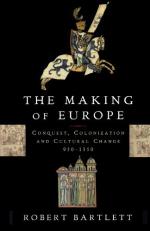|
This section contains 1,937 words (approx. 7 pages at 300 words per page) |

|
European Religious Prospects. By the eighteenth century, European Christianity in general, and the Roman Catholic Church in particular, had largely recovered from the political and moral difficulties that had confronted it during the turbulent Reformation and Counter Reformations movements of the sixteenth century. Spurred by the missionary zeal of the Jesuits and the colonial expansion of Catholic Spain, Portugal, and France, the Roman Catholic Church had gained new believers to compensate at least partially for those it earlier had lost to the Protestants, and even was in the process of winning back growing minorities within the Eastern Orthodox Churches. By 1750 the Roman Catholic Church had faithful worshipers living on five continents and on the major islands that encircled them. Protestants were also spreading around the globe, although their numbers were much lower than those of the Catholic Church. Except for the Russian Church, Eastern Orthodox churches lacked vitality...
|
This section contains 1,937 words (approx. 7 pages at 300 words per page) |

|



